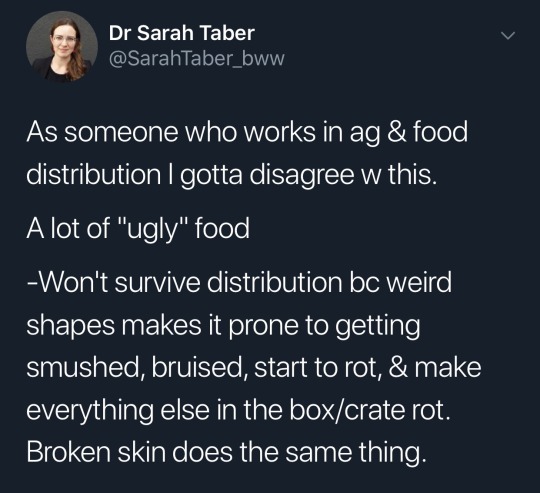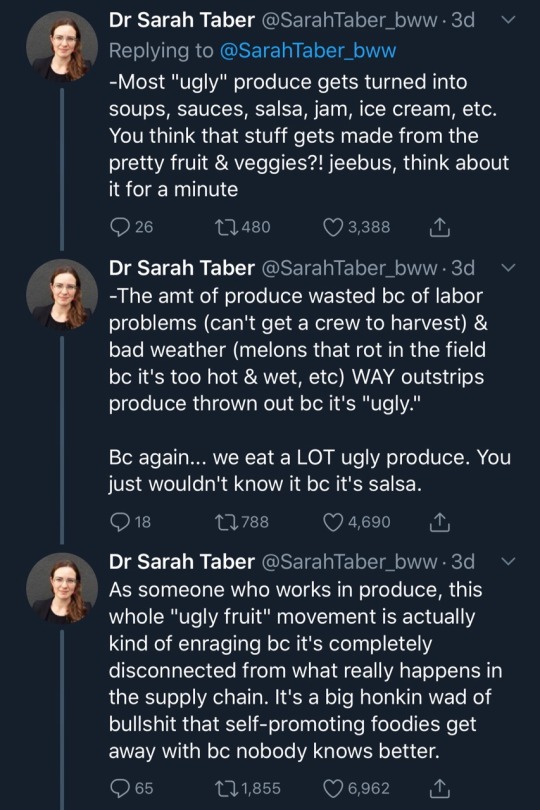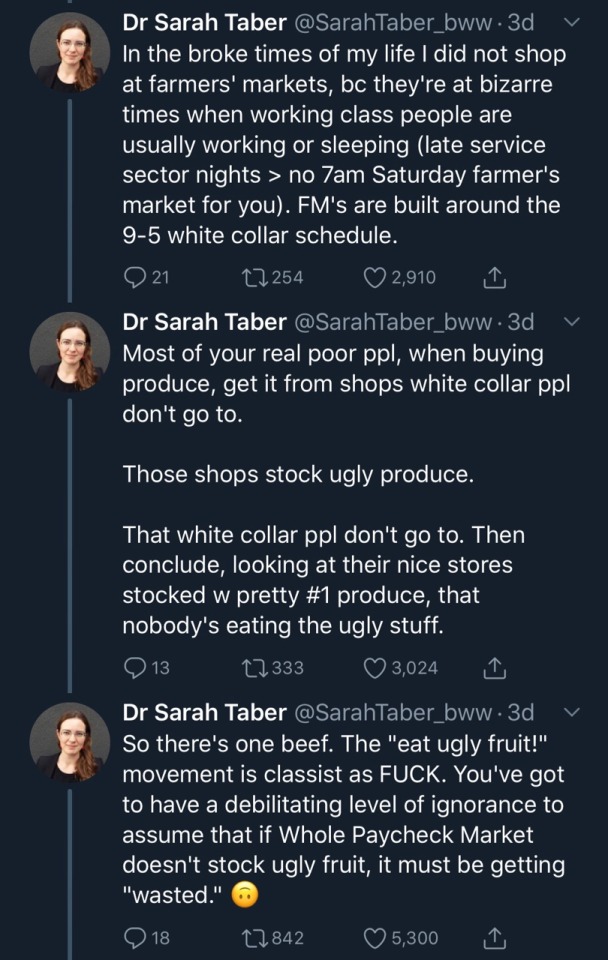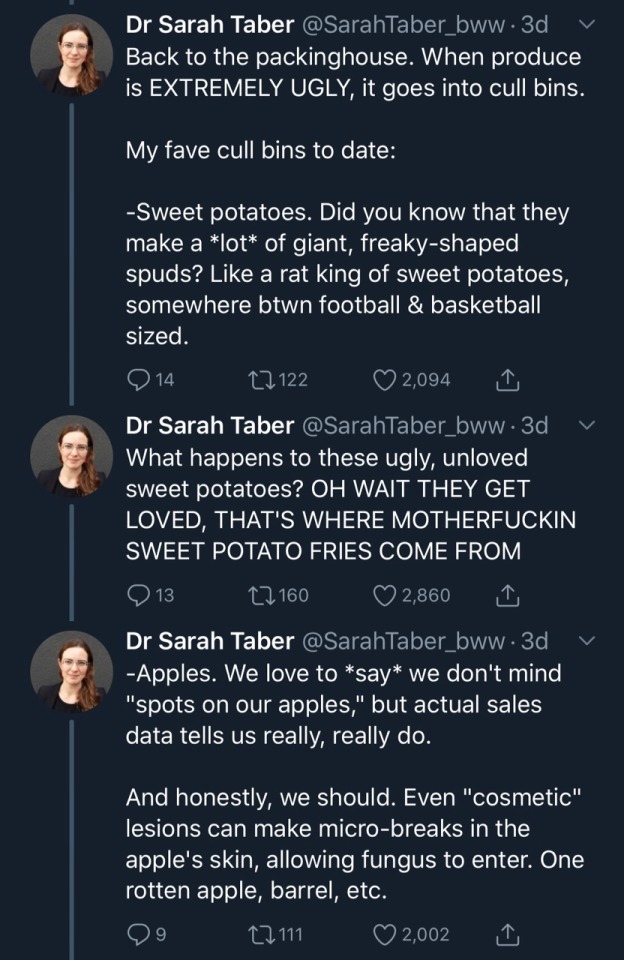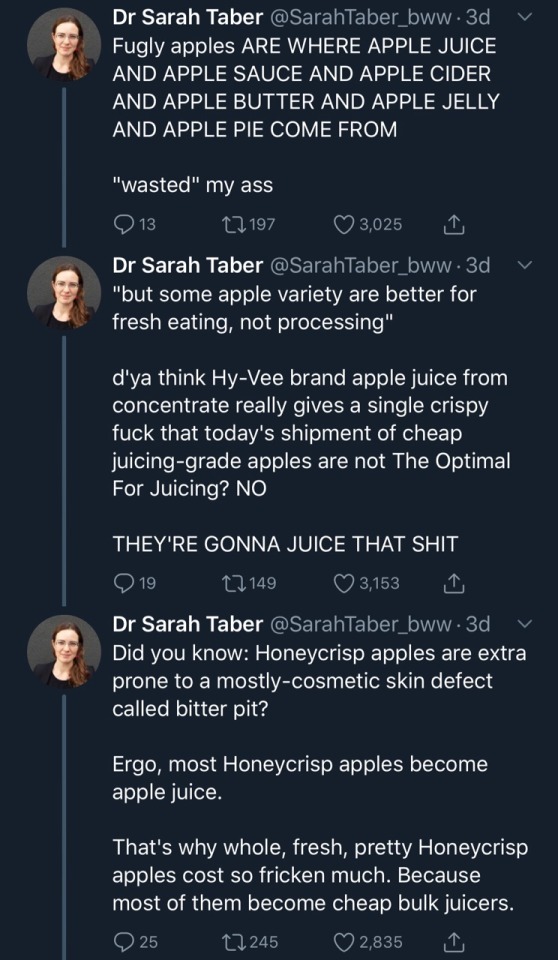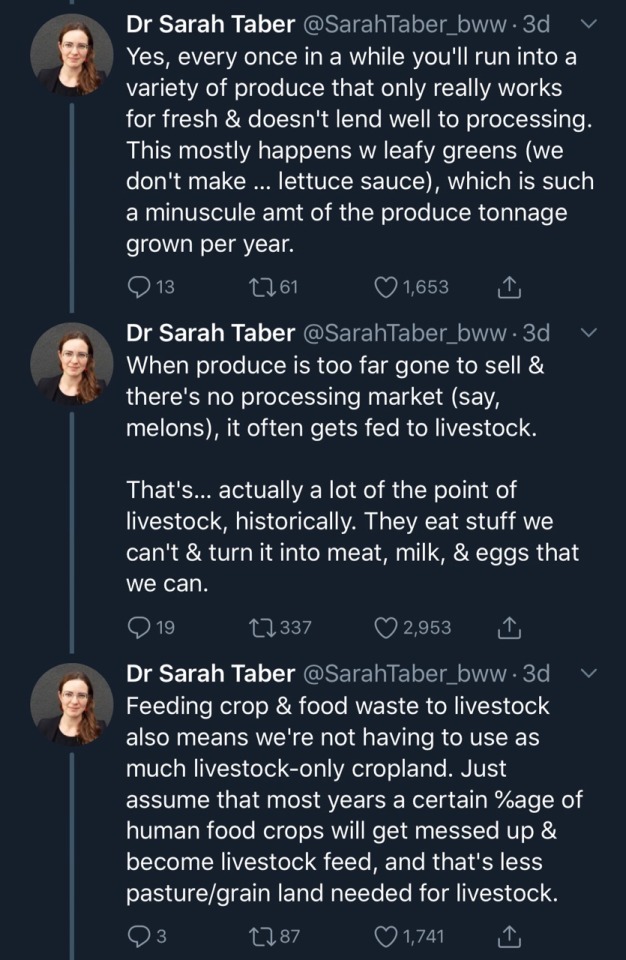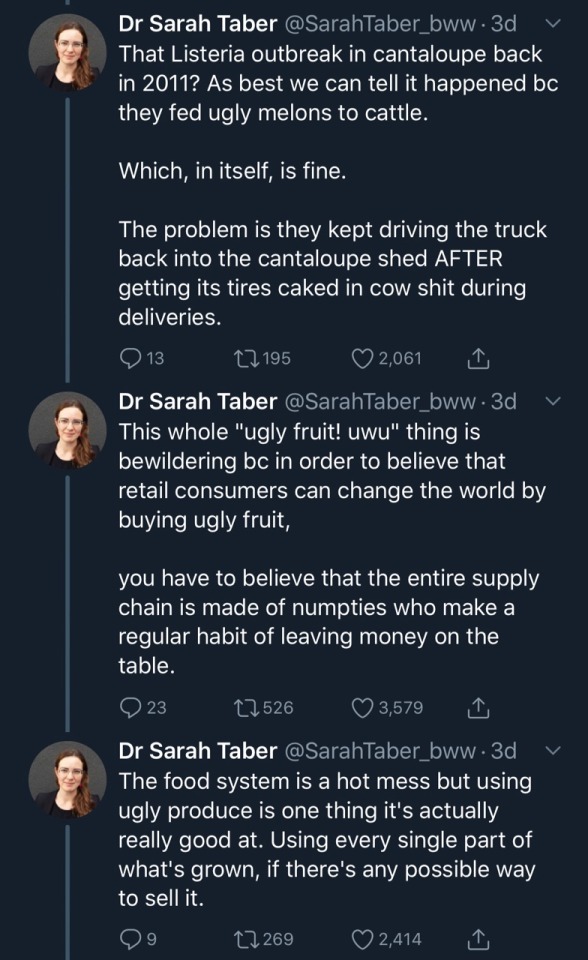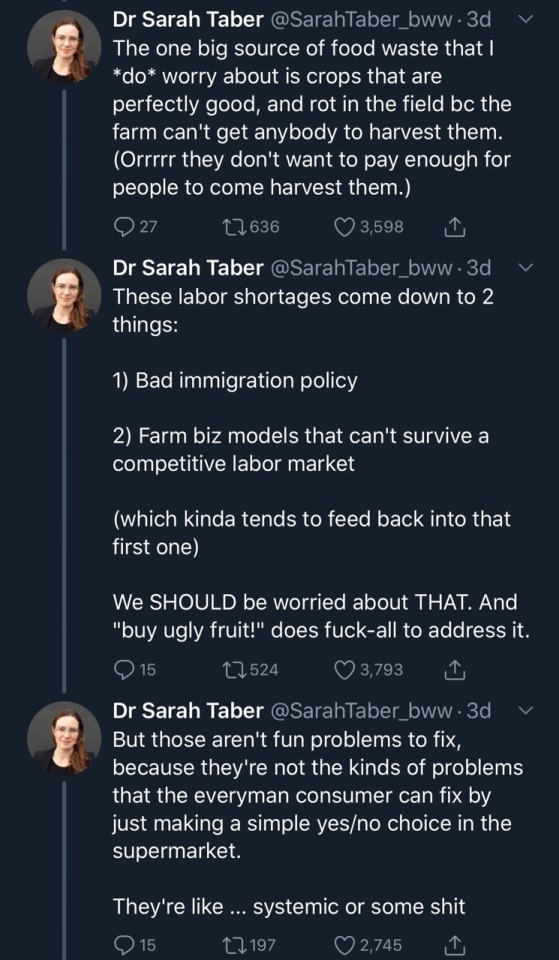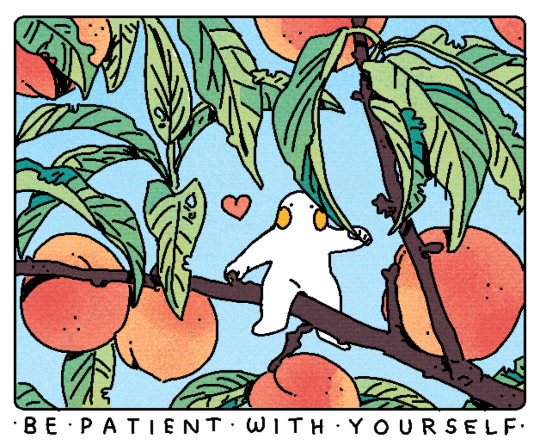trying to navigate this messy life with grace. I want to be stronger and softer than I was the day before.
Don't wanna be here? Send us removal request.
Text
Lovey dovey bitch syndrome is decaying my brain
65K notes
·
View notes
Text
“I have this strange feeling that I’m not myself anymore. It’s hard to put into words, but I guess it’s like I was fast asleep, and someone came, disassembled me, and hurriedly put me back together again. That sort of feeling.”
— Haruki Murakami
17K notes
·
View notes
Text
megachurch pastors: i will see you all in heaven!
God:

43K notes
·
View notes
Text
The stories of women in my family who were forced into lives they didn’t want and didn’t utilize their passions breaks my heart. My grandma wanted to be a journalist and write about the injustices she saw inflicted on disabled ppl while she was volunteering at a state run institution as a teen. Her father decided that she was “too fat and stupid” for college and forced her to get married at 17 or else he’d make her homeless. As a kid she told me that she wished people believed that she had meaningful opinions on events around her. One of my great grandmothers wanted to be an artist but was pressured into marrying a man who beat her. She stayed up late each night when her children were in bed writing poetry and pasting it over elaborate collages she mad herself. We still have stacks of these notebooks she created but was never allowed to do anything with. My mother wanted to be an operatic singer and was considered a musical prodigy in her town because she taught herself three seperate instruments by 13. When she was 18 she met my then 30 year old father who emotionally manipulated her into giving up her dreams to start a family with him. As a kid I would hear her up at night playing the violin or doing vocal exercises until she became too depressed to practice anymore. Like idk y’all there’s a quiet type of violence in the way women’s talents are devalued and brushed aside in favor of bullying them into “traditional” roles that ultimately don’t fulfill what they wanted for their lives. We’ve lost so much art, music, writing, science, and happiness to misogyny.
99K notes
·
View notes
Text
stop waiting on men to validate you. you’re pretty. you’re smart. you’re interesting. you’re worth time & effort. you deserve to be loved. you need to know these things and truly believe them. don’t wait on some man to come along and tell you.
226K notes
·
View notes
Text
“Usually, trauma is seen as something that needs to be healed. Something to be “processed” - to be dealt with privately, in therapy or among a circle of close friends, to be addressed as a problem and solved. To be neatly and tidily compartmentalized, separated from oneself, shrunk smaller and smaller until it no longer affects one directly, until it is altogether stored away. “Your trauma should not define you,” clinicians will say.
If an event or circumstance is harmful to or painful for a trauma victim or survivor, it is framed as “triggering.” It couldn’t possibly be that the event or circumstance is in of itself harmful, and that an individual’s trauma has provided them with insight into the event’s harmfulness. No, the issue is that the victim has not dealt with their trauma effectively enough, that their trauma is still affecting them.
In this sense, trauma is framed as a singular and isolated incident, as an exception to the rule. The world is a generally safe, just place, but victims and survivors have been falsely convinced by their traumatic incident that the world is unjust and unsafe. It is not possible that trauma could be an ever-present constant, perpetually occurring in every sphere of life.
Not only are experiences of victimization not seen as expertise, but they are seen as pathology. As something that causes victims to see the world less clearly, to think less rationally.
Yet for me personally, my victimhood has only allowed me to see the world more clearly. I grew up in a fairly conservative, capitalist family and shared and embodied those values for a large part of my life. I had been taught, and so it seemed to me, that the world was a fair place, and people who were economically marginalized (for example) were just not working hard enough. My victimhood fundamentally rattled my trust in the safety or justice of the world, and as a result I increasingly developed empathy for other victimized populations. My victimhood did not cloud my judgment or get in the way of my thinking clearly; rather, it radicalized me.
Don’t get me wrong. I’m not advocating for victimization or attempting to justify victimizing people because it gives them expertise.
But I wonder how our communities and contexts might change if, instead of always asking people how they plan to treat or heal from their trauma, we gave them more opportunities to share what they have learned about the world, about the human condition, about power structures, about the impact of ongoing and pervasive systemic issues. What if, instead of asking, “What happened to you [as an individual]?” we gave victims more chances to situate their traumatic experiences within a broader framework of systemic injustice and contextual power imbalances that they now have insight into?”
Victimhood as Expertise by Emily S. Cutler
7K notes
·
View notes
Text
“Radical softness is the idea that unapologetically sharing your emotions is a political move and a way to combat the societal idea that feelings are a sign of weakness”
— Lora Mathis
1K notes
·
View notes
Text
If I do not keep on testing my limits, my comfort-zone shrinks back. Challenges that had seemed comfortable one year took courage to achieve the next. I do not want to get into that position again, so onwards and outwards.
Philippa Perry
101 notes
·
View notes
Text
“May your choices reflect your hopes, not your fears.”
— Nelson Mandela
2K notes
·
View notes
Photo
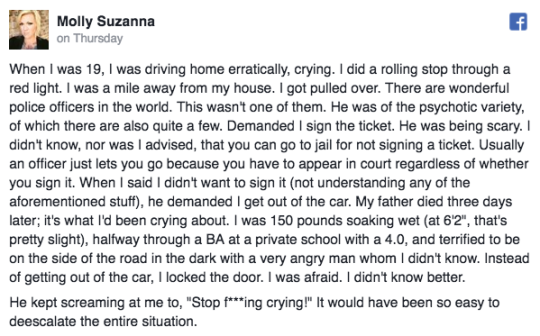
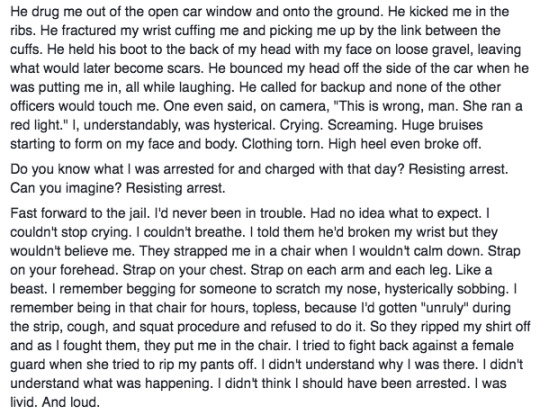

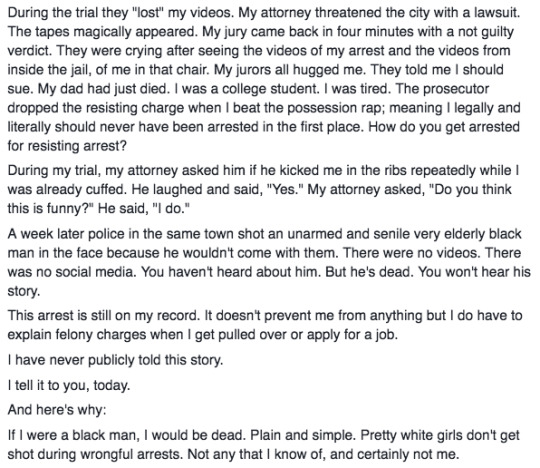

This white woman’s shocking account of police brutality reveals the importance of the #BlackLivesMatter movement
Molly Suzanna shared a story on Facebook that she had never told before: when she was 19, she ran a red light while crying, then was pulled over and forcefully removed and beaten by a police officer. She explains in the letter that she believes her situation would have been even worse had she been black — and she ends the letter with an important call to action.
345K notes
·
View notes
Text
The practice of self-observation mirrors the way in which a mother observes and attunes to her baby. Self-observation is a method of re-parenting ourselves. What am I feeling now? What am I thinking now? What am I doing at this moment? How am I breathing? What do I want for myself in this new moment?
Philippa Perry
123 notes
·
View notes
Text
it’s crazy and downright scary how good women are at pretending that they’re happy. you could have a woman living in an emotional pit that she doesn’t even believe there’s a way out of but to you and all around her, she’s a ball of sunshine. it’s terrifying.
24K notes
·
View notes
Photo
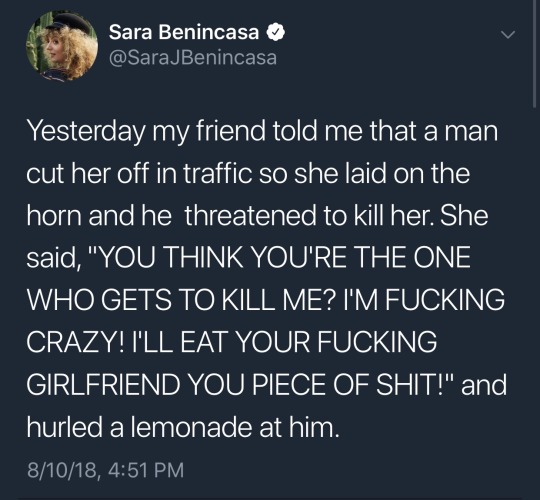
“you think you’re the one who gets to kill me?” fghjvkfkkd
282K notes
·
View notes
Text
“I don’t like the phrase “a cry for help”. I just don’t like how it sounds. When someone says to me, “I’m thinking about suicide, I have a plan; I just need a reason not to do it”. The last thing I see is helplessness. I think your depression has been beating you up for years. It’s called you ugly, and stupid, and pathetic and a failure. For so long that you’ve forgotten that it’s wrong. You don’t see any good in yourself, and you don’t have any hope. But still, here you are. You’ve come over to me, banged on my door and said “hey! Staying alive is really hard right now! Just give me something to fight with! I don’t care if it’s a stick! Give me a stick and I can stay alive!” How is that helpless? I think it’s incredible. You’re like a marine, trapped for years behind enemy lines, your gun has been taken away, you’re out of ammo, you’re malnourished and you’ve probably caught some kind of jungle virus that’s making you hallucinate giant spiders. And you’re still just going “give me a stick. I’m not dying out here”. “A cry for help” make it sound like I’m supposed to take pity on you, but you don’t need my pity. This isn’t pathetic. This is the will to survive. This is how humans lived long enough to become the dominant species. With NO hope, running on NOTHING, you’re ready to cut through a hundred miles of hostile jungle with nothing but a stick, if that’s what it takes to get to safety. All I’m doing is handing out sticks. You’re the one staying alive.”
— From a poster in a therapists waiting room
2K notes
·
View notes

